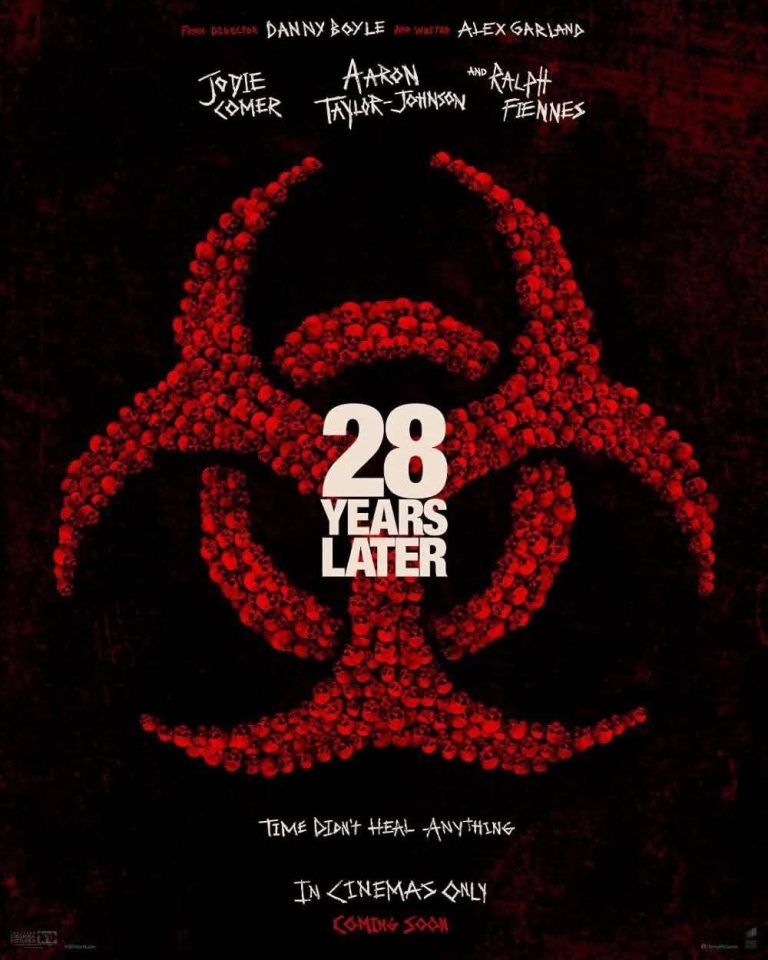
Review: Why 28 Years Later May Divide Zombie Fans
By: V. Singson

Danny Boyle and Alex Garland reunite for 28 Years Later, the long-awaited third chapter in the iconic post-apocalyptic horror saga that began with 28 Days Later (2002) and its sequel 28 Weeks Later (2007).
Set nearly three decades after the Rage virus first decimated civilization, 28 Years Later introduces us to a world where survival has hardened into routine, and the lines between rebuilding and merely existing have all but disappeared.
The adult cast is led by Jodie Comer (Killing Eve, Free Guy) and Aaron Taylor-Johnson (Kick-Ass, Nocturnal Animals) who put in solid performances as scarred survivors trying to make their way in this shattered world. But the film’s emotional center belongs to Alfie Williams, in an impressive feature debut as Spike, a 12-year-old boy who is faced with reckoning with the legacy of humanity’s collapse. Through his eyes, the film does not just visualize survival but what it feels like to grow up in a world where the apocalypse is not a single event... it’s the only reality you’ve ever known.
That said, 28 Years Later is bold and unconventional that may divide the audience.
If you are a purist expecting classic zombie tropes, you might miss the raw terror and relentless pacing of the earlier films.
But for those open to evolution, this installment digs deeper—into human truths, memory, and love as the most powerful force of survival.
Boyle’s treatment is experimental—interspersing bursts of flashbacks, symbolic imagery, and historical fragments to heighten emotional and thematic depth.
The surprise inclusion of a colorful tracksuit-clad crew in the final act adds a fresh, culture-shifting edge.
While not a traditional zombie virus film, 28 Years Later pushes the genre into new terrain, with a story that lingers long after the final frame.
Verdict: 3/5
28 Years Later is now showing in Philippine cinemas.
Presented by Columbia Pictures, DNA Films, Decibel Films, Sony.
Photos from 28 Years Later Facebook Page.
